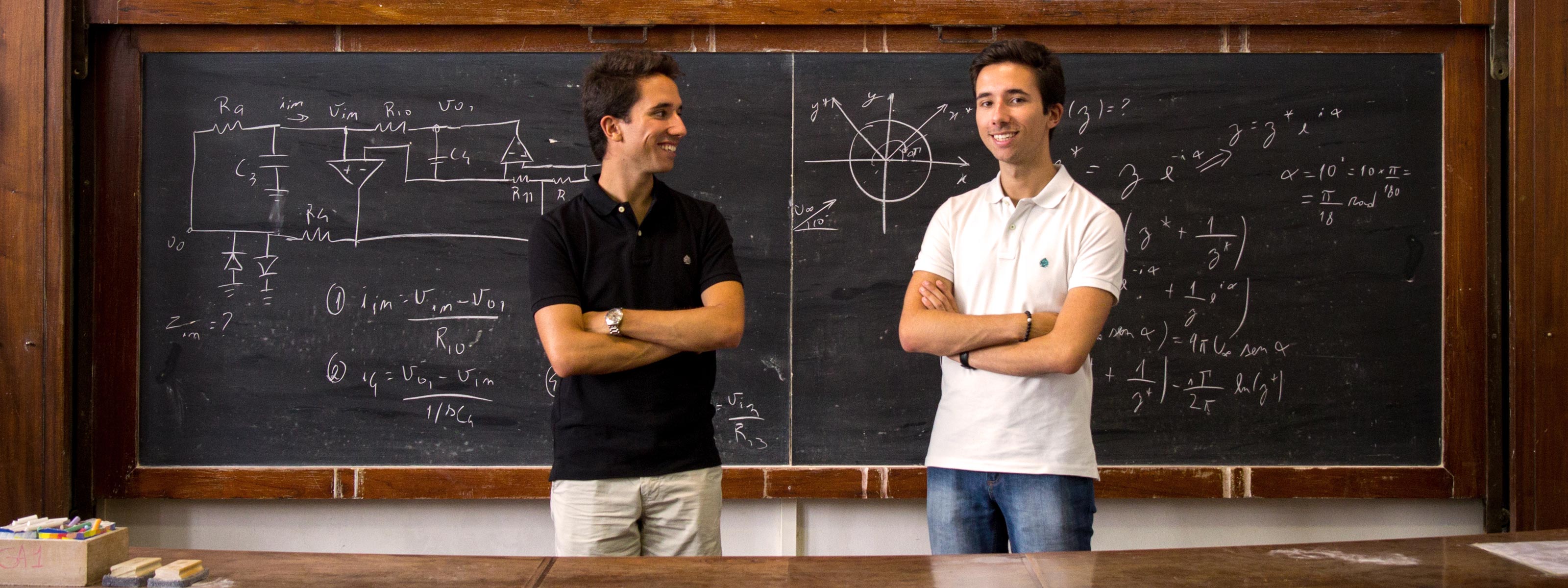
Access to Education
Promote access to quality education, valuing merit and talent
According to data from the OECD, Portugal’s level of investment in education is below the international average, while also presenting one of the lowest investments in higher education. Building a more equitable education system is paramount.
Since its creation, the Gulbenkian Foundation has contributed to ensuring that people have equal opportunities in education in all areas of knowledge, from the sciences to the humanities and the arts. A ground-breaking work that has supported more than thirty thousand people to date, from Portugal to Africa and various countries, making this area of intervention a benchmark of the Foundation.
In a country that faces challenges to social mobility, with little investment in education and where an ecosystem of stimuli for excellence and creativity in research and the arts is lacking, the Gulbenkian Foundation seeks to help more young people to pursue quality education.
By working to improve access to education, the Foundation aims to foster social equity, enabling people to have opportunities based on their merits and less depending on differences in social origin, and to prepare the next generations to contribute to the well-being of society through their talents and leadership.
Our approach
Research is clear in showing the existence of a strong relationship between socio-economic level and people’s education indicators, such as school performance and academic level achieved, retention and academic dropout. Reversing the situation requires a systemic change, where one of the key actions is to award more and better scholarships.
The Gulbenkian Scholarships seek to identify students with high potential and give them the conditions to overcome adverse social situations, develop their talents, and stimulate work in certain areas not considered a priority by governments and funding agencies, but fundamental for the construction of a sustainable society.
By awarding scholarships, we ensure access to high-quality education and transform potential talent into innovative performance. In this way, the Gulbenkian Scholarships contribute to better employment opportunities.
Key areas of action
Merit in higher education
We support examplary students in higher education, from any area of knowledge, with less economic capacity, from the first year of undergraduate studies to the completion of the master’s degree.
The scholarship also includes support for a period of studies outside Portugal. This support for international mobility is intended to give more students the opportunity to study abroad and thus get to know and adapt to different realities, and to develop resilience, differentiating skills when they later enter the job market.
New Talents in research
New Talents is an integrated programme for identifying and developing talent that provides the scholarship holder, in addition to financial support, mentoring by a tutor, training workshops and guidance by a scientific committee.
We believe that discovering young talent is more difficult to achieve in a mass education and therefore we adopt an approach aimed at creating an immersive experience to stimulate research work.
Arts training
In order to facilitate entry and continuity in an artistic career, we support the academic and technical training of young artists through scholarships for study abroad.
With this programme, we aim to contribute to the expansion of horizons through access to internationalisation and the creation of global networks, in schools that place artists at the centre of creation.
Africa
Scholarships for students from developing countries are an important instrument to increase the number of qualified human resources in the countries of origin and to promote merit-based access to higher education.
With this scholarship programme, we believe we are also promoting educational and scientific mobility and contributing to the development of society in the countries of origin, through the scholarship holders.
